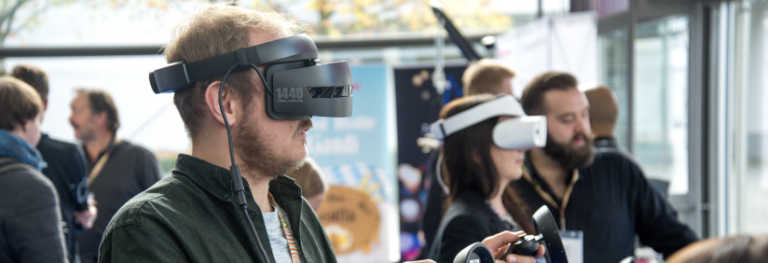Image from security.org
Brain-computer interfaces (BCIs) have long been the stuff of science fiction, allowing individuals to control computers and other devices using only their thoughts. However, recent breakthroughs in this field have brought us closer than ever to making this technology a reality. In this article, we will explore some of the major advances in brain-computer interfaces that have been announced in recent years.
1. Neural Implants for Paralysed Patients
One of the most significant advancements in BCIs is the development of neural implants that can restore movement and communication abilities to paralyzed patients. For example, a team of researchers at Stanford University successfully implanted a chip into the brain of a paralyzed patient, allowing him to type on a computer screen using only his thoughts. This breakthrough has the potential to greatly improve the quality of life for individuals with spinal cord injuries or other conditions that limit their mobility.
2. Mind-Controlled Prosthetics
Another exciting development in the field of BCIs is the creation of mind-controlled prosthetic limbs. These advanced prosthetics use neural signals from the brain to control movement, allowing amputees to regain dexterity and perform complex tasks. For instance, a study published in the journal “Nature” showcased a mind-controlled prosthetic arm that enabled a patient to pick up objects with a natural grip. This technology has the potential to revolutionize the lives of amputees, providing them with greater independence and functionality.
3. Brain-Computer Interfaces for Mental Health
BCIs are not limited to physical applications; they also hold promise for mental health treatments. Researchers have been exploring the use of BCIs to help individuals with conditions such as depression and anxiety. By monitoring brain activity, these interfaces can provide real-time feedback and assist in the regulation of emotions. For example, a study conducted at the University of California, San Francisco, demonstrated that a BCI could help patients with treatment-resistant depression achieve significant improvements in their symptoms.
4. Gaming and Entertainment
BCIs are not just for medical applications; they also have the potential to revolutionize the gaming and entertainment industry. Companies like Neuralink, founded by Elon Musk, are working on developing BCIs that can enhance virtual reality experiences by directly interfacing with the brain. This could allow users to control virtual environments and characters using their thoughts, creating a more immersive and interactive gaming experience.
The field of brain-computer interfaces has seen major advances in recent years, with breakthroughs in neural implants for paralysed patients, mind-controlled prosthetics, mental health treatments, and gaming applications. These advancements have the potential to transform the lives of individuals with disabilities, improve mental health outcomes, and revolutionize the entertainment industry. As research and development in this field continue, we can expect even more exciting innovations that will bring us closer to a future where our thoughts can directly interact with technology.





























+ There are no comments
Add yours